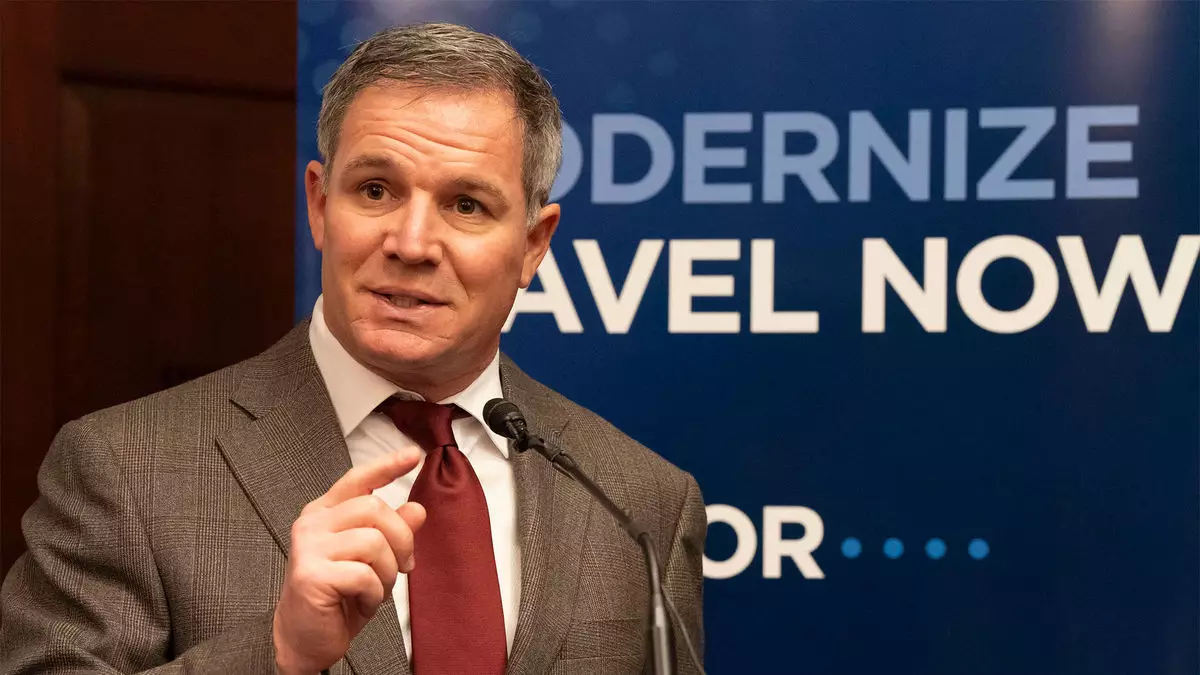As the United States prepares for an anticipated influx of international visitors, the air travel infrastructure is on the verge of falling short of accommodating this surge. A recent report from the U.S. Travel Association highlights the urgent need for transformation within the nation’s travel systems to prevent chaos and frustration among millions of travelers. The projected rise in tourist numbers is attributed to a series of globally significant events, including the 2026 FIFA World Cup and the 2028 Olympic and Paralympic Games, which are expected to attract millions. Such an increase places unprecedented pressure on an already strained travel framework.
The potential economic impact of these events cannot be overstated. According to estimates, they could bring in up to 40 million international visitors, generating a staggering $95 billion in economic activity. This economic boon is contingent upon the nation’s ability to effectively manage the influx of travelers. Therefore, preparing not just for visitor arrival but also for smooth transit is critical. The call for modernization reflects a deeper understanding that economic opportunities are at stake, and failing to act could cost the U.S. immensely in lost revenue and global standing in tourism.
In its report, the Commission on Seamless and Secure Travel put forth several recommendations aimed at revamping the current systems. One of the key suggestions is the establishment of a dedicated White House task force, designed to evaluate the necessary resources and strategies required for the upcoming decade of monumental events. Moreover, the report points to the need for expedited visa processing by boosting consular staffing levels, which remains a continuous bottleneck in accommodating international travelers.
Furthermore, significant investments in advanced airport screening technologies and biometrics are imperative. By adopting cutting-edge technology, the goal is to vastly reduce the long wait times that are currently a frustrating aspect of air travel. Increasing customs agent staffing and implementing programs to ease the re-entry process for Americans returning from abroad are additional significant recommendations that require immediate attention.
The CEO of U.S. Travel, Geoff Freeman, has made it clear that the time for half-measures has passed. During a recent discussion in Washington, he emphasized the need for not just any changes, but transformational progress that can adequately meet the demands of an evolving global travel landscape. Freeman argues that the upcoming years present a once-in-a-generation opportunity for the U.S. government to enhance travel experiences comprehensively, thereby unlocking an estimated $100 billion opportunity.
The commission also called for the modernization of air traffic control systems, typically bogged down by outdated technologies and personnel shortages. Innovative airport screening practices, which could allow travelers to carry larger liquids and leave electronics in their bags, are also proposed as a way to streamline the travel experience, addressing everyday frustrations that travelers face.
With global competitors enhancing their travel systems at a rapid pace, the U.S. faces a significant risk of falling behind. The message is clear: to remain competitive in the international arena, immediate and bold actions must be taken. Leaders at both the federal and local levels must prioritize these recommendations to ensure that the travel experience is not only seamless but also secure. Without decisive moves towards modernization, the United States could find itself struggling with an outdated infrastructure just as the world descends upon it for major global events, highlighting the incredible lost potential this poses for future generations.


Leave a Reply